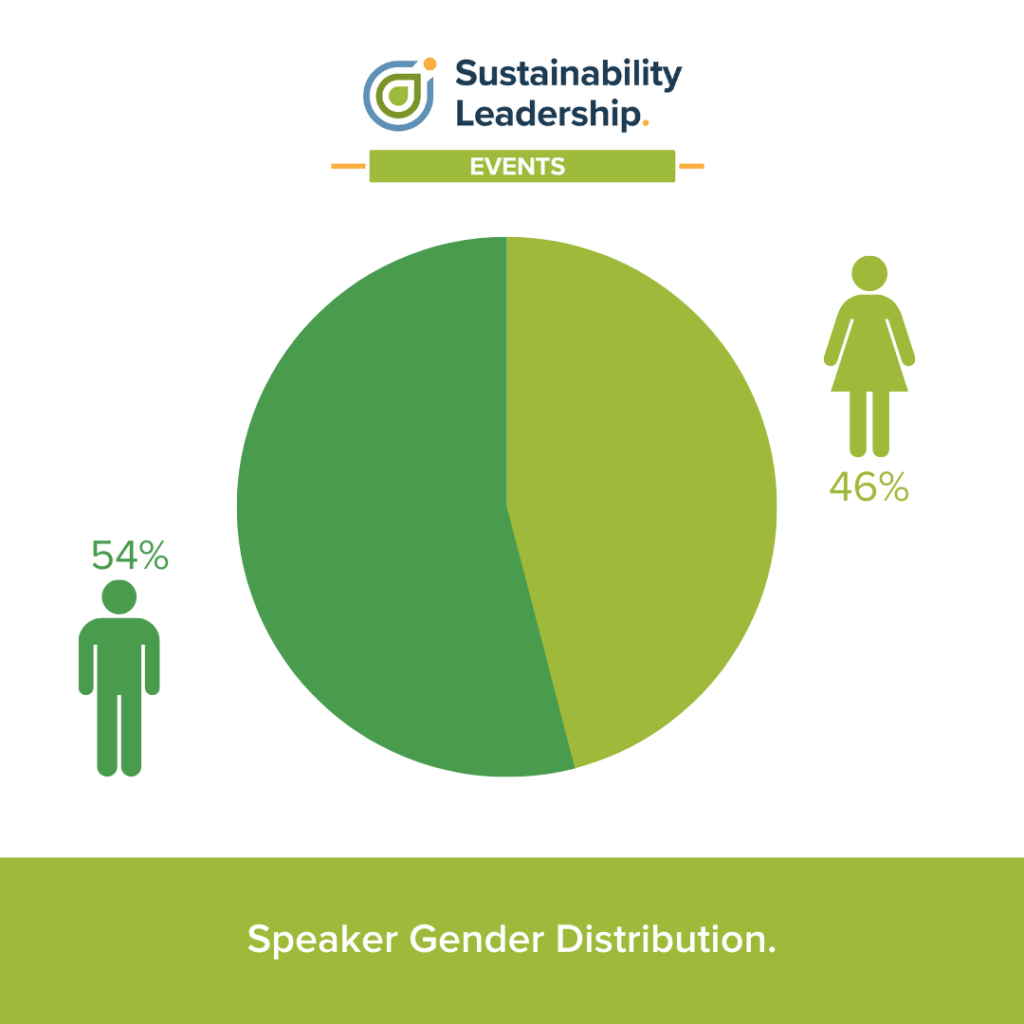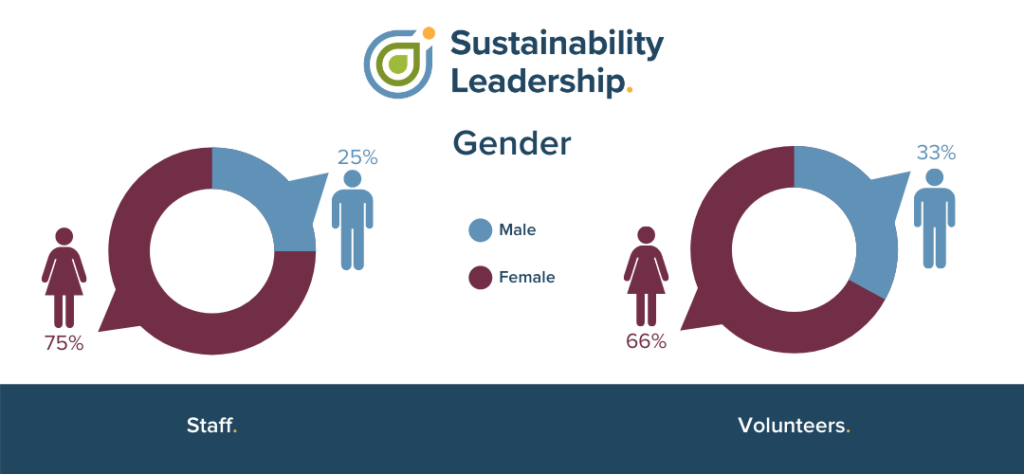Annual Impact Report 2021
Year in Review.
Year in Review.
The distinct challenges of 2021 have left many feeling despondent about the overall state of the global environment and conditions. The consequences of climate change continued to be reflected throughout the weather events of the year. The extreme droughts experienced by the southern Prairies, western Ontario, and British Columbia were intensified by record-breaking high temperatures across North America and a perpetual lack of precipitation. It resulted in widespread extreme fire danger across most of Western Canada and Ontario. Consequently, it became one of Canadas’ busiest fire seasons in recent years, with 6,224 fires during the year, accounting for over 4.18 million hectares burned. Meanwhile, the world continued to manoeuvre through the global pandemic, which brought on a new set of challenges for businesses. With lasting lockdowns, there continued to be a lack of in-person interactions and events. Additionally, the consequences of the pandemic were reflected in supply chains as well. Global supply chains and shipments faced unprecedented delays due to staffing shortages, shifting consumer demands, and logistic systems running at maximum capacity.
Despite these challenges, the successes of 2021 bring optimism and hope for the future. To begin the year, the USA, the world’s second largest emitter, rejoined the Paris agreement. This brings potential for stronger cooperation among countries to strengthen the global response to climate change and aim to limit temperature increases. To complement this, new policies led to an increase in the world’s protected areas. A report by the International Union for Conservation of Nature stated that an area of land greater than the size of Russia has fallen under some level of protection in the last decade. Another report by Trillion Trees in May stated that the world has gained an area of forest the size of France since 2000.
To finish the year, the International Energy Agency announced that 2021 was a record year for renewable energy. It was reported that about 290GW of new renewable energy capacities, with most being in the form of wind turbines and solar panels, were installed around the world this year. With these numbers, it is speculated that renewables will account for about 95% of growth in global power-generation capacity up to the end of 2026.
Despite the adversities faced, the highlights of 2021 reflect the tremendous strides in sustainability and resilience strategies that will prove to be valuable in the years to come.
Organisation Updates.
Brand Transition.
In late 2020, our organisation began its brand transition and successfully moved into its new identity as Sustainability Leadership in the first half of 2021. The name of our organisation evolved to reflect our expanded service areas of the Halton and Niagara regions. We did not want to undermine the success of the organisation that was built around the names Sustainable Hamilton (SH) and Sustainable Hamilton Burlington (SHB), which has been the go-to name in business sustainability for the community over the last 10 years. Staying true to the culture and mission of our organisation, we set out to ensure the name of our organisation reflected our vision, mission and values. The new logo was developed to reflect the growing and cyclical nature of sustainability practices with elements of the environment, society and economy embedded.
Events.
In 2021, we were proud to have hosted 8 virtual events which drew in over 300 attendees from all over the world. We presented a diverse set of perspectives by inviting sustainability professionals, industry experts, and government representatives as keynote speakers and panelists at these events, enhancing our mission delivery and elevating our impacts. Our events are a significant component in building the local sustainability momentum, fostering valuable education and enabling networking opportunities.

In February, we brought business leaders together to educate them on the support and solutions available for a quick and effective recovery from the pandemic. In April, we hosted “The Business Battle with Climate Change”, a webinar sharing how to build more resilient communities and business strategies in a changing environmental and social climate. In June, we hosted our 9th Annual Event of Recognition & Sustainability Leadership Awards to celebrate our achievements over the previous year and recognise the successes of our dedicated Sustainability Leadership Program Members. This Signature Event continued our climate resiliency theme and featured a keynote speaker from Stantec on carbon neutrality.








Between the months of September through November, we hosted our second Signature Event of the year, our Sustainable Business Expo (SBX). This was a 3-part event series focusing on circular economy and zero-waste, which included a webinar assessing our current linear economy model, our very first student Innovation Hackathon, and an entirely virtual trade show featuring over 20 keynote speakers!
Our Innovation Hackathon was an opportunity for students and young professionals to create innovative solutions for businesses to integrate a circular economy, the winners were announced at the trade show and we had 2 projects win the top prize.
Finally, in December we hosted our first lunch and learn session to share some of the latest AI technology built for assessing employee satisfaction and social sustainability in the workplace. 2021 was a year full of valuable connections and impacts made among students, business owners, employees, and members of both our local and global communities.
Partnerships.
Sustainability Leadership is proud to be part of Green Economy Canada, a national not-for-profit organisation dedicated to accelerating Canada’s transition to a vibrant and sustainable low-carbon economy. This growing network consists of 8 Green Economy Hubs and over 250 businesses who are taking action on climate change, building sustainability into their operations and creating a better future for generations to come. By 2024, Green Economy Canada’s goal is to support 20 Green Economy Hubs across the country, engaging thousands of businesses in changing business-as-usual.
Visit greeneconomy.ca to learn more.
The Bay Area Climate Change Council (BACCC) is a social impact initiative made up of 14 community leaders from Hamilton and Burlington, including Sustainability Leadership as a founding member. BACCC’s vision is for the Bay Area to be a thriving and resilient net-zero community by 2050. The mandate of BACCC is to develop and advocate for local climate solutions that will reduce greenhouse gas emissions. In doing so, BACCC provides strategic leadership and functions as an ongoing forum for advice, feedback, and guidance to the cities of Burlington and Hamilton.
Over the past year, BACCC has led over 15 policy initiatives to help local government tackle climate change in our community, including a complete municipal retrofit program design, a green economic development strategy, and an optimised transportation network framework examining service gaps between Hamilton and Burlington.
In October of 2021, we partnered with BACCC for our first official Instagram Story Takeover as a means to highlight the climate initiatives our organisation has taken in recent time. Social media content was exclusively created by our team and shared over a 24 hour period by BACCC. The takeover sparked hundreds of page and story views on both of our platforms and contributed to an increase in our mutual social media following. BACCC continues to be a valued Community Partner of Sustainability Leadership and we hope to work on more creative project collaborations over years to come.

Sustainability Leadership continued to provide support to the City of Hamilton and the City of Burlington by giving feedback and supporting their Hamilton Community Energy & Emissions Plan and Burlington Climate Action Plan.
Throughout the past year, the City of Hamilton and the City of Burlington showed that sustainability is an integral part of a resilient recovery. Both municipalities made progress on developing their plans and implementing strategies while also providing resources and support to protect their citizens. Their leadership shows that sustainability is an integral part of recovery.
Community Impacts.
Social.
We believe that it is incredibly important that we prioritise Indigenous voices in discussions on how to pave a better, more sustainable path forward. At our Sustainable Business Conference & Tradeshow, we invited local Indigenous leader, Allan Loft, to give opening remarks on behalf of the Six Nations of the Grand River Territories – Ken:ia:ke:ha – gen yuh geh huh- Flint People – Mohawk Nation. Allan has been the Coordinator of the Healthy Aboriginal Men’s Drum Circle (HAM) – Hamilton over the past 20 years. He has served in many capacities in various projects within the Indigenous and mainstream associations of Hamilton, surrounding areas and beyond, including the Hamilton Regional Indian Centre, the Aboriginal Health Access Centre, the Hamilton Police Advisory Committee and presently, the Hamilton Aboriginal Advisory Committee for Hamilton City Hall. Allan’s work strives to bring about change and a better understanding of the welfare and advancement of not only Aboriginal Peoples, but also the People of the World. [GRI 413-1]
We also had the chance to support Indigenous leaders working towards climate action. We donated a percentage of the revenue from ticket sales of our Sustainable Business Conference & Tradeshow to Indigenous Climate Action, a grassroots organisation focused on inspiring climate action through the development of tools and opportunities created with, by, and for Indigenous voices. You can learn more about our own Indigenous Land Acknowledgement on our website! [GRI 413-1]
In 2022, Sustainability Leadership started with 5 staff, saw 7 new staff join and 7 staff leave for a total of 12 staff supported throughout the year. At peak we had 8 full time staff working together to rebuild our organisation following our brand transition. We are very grateful to have these staff afforded to us through grant opportunities we did not previously have. Additionally, we had the generous support of 13 volunteers, providing their knowledge, skills and expertise through research and project development. [GRI 401-1]

Environmental.
By hosting our events virtually, we were able to significantly reduce our carbon emissions. However, we recognise that there are still emissions associated with virtual events. Through survey data and attendee statistics, we worked with Carbonzero to quantify the carbon emissions produced by our events which was less than 1 tonne, with the majority coming from Scope 2 – electricity consumption. We then purchased offsets in the amount of 1 tonne to account for all of our events in 2021 as well as a portion of our operations, which we were unable to quantify accurately. This was an important step in taking deeper accountability for our actions and leading on climate action through investing in climate change solutions. We aim to continue this momentum and track our emissions more thoroughly throughout the year to become a carbon neutral operation within the next few years. [GRI 305-2, GRI 305-5]
Additionally, we continue to reduce our waste by presenting our Annual Impact Report in digital forms, and reducing the print material at events by distributing digital copies of resources.
Economic.
Our organisation was fortunate to receive funding from the federal government through the Canada Emergency Business Account (CEBA) program, Canadian Emergency Wage Subsidy (CEWS) program and Canada Summer Jobs. [GRI 201-4]
For an entry level position with Sustainability Leadership, staff were paid at least 25% higher than minimum wage. As we begin to rebuild and create long term resiliency, we aim to improve this figure despite the announced increases in minimum wage to ensure our staff are fairly compensated and are provided a more fair living wage. Our compensation levels are also gender neutral, meaning our staff members are compensated equally and based on performance. [GRI 202-1, GRI 405-2]
While working remotely has provided us with the opportunity to digitise everything, there were still situations in which we needed a physical product, such as our Sustainability Leadership Awards. Currently, and over the past few years, we have worked with a local glass blower right in our own backyard to produce the awards – Rodrigue Glass of Hamilton, Ontario. Our bookkeeper, Stansbury & Co, and financial auditor, Taylor Leibow, are both based in Hamilton. Lastly, to support our website transition, we have worked with our good friends at Agenda Marketing who are also based in Hamilton. Overall, where products and services could be sourced locally, approximately 92% of our spend went to supporting local businesses, of which more than 85% went to local small businesses in 2021. [GRI 204-1]




